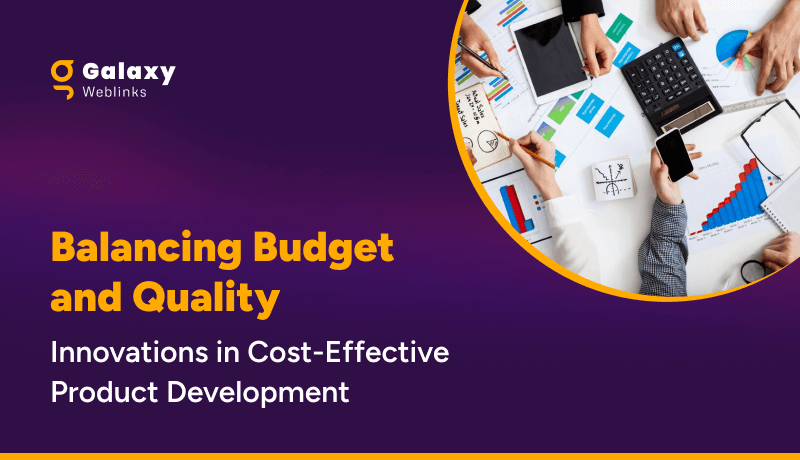Share:
The Backbone of the Web: Backend Frameworks
Backend frameworks form the backbone of the web, ensuring that applications and websites function smoothly. They provide the infrastructure for data storage, retrieval, and the logic that drives the user interface. In short, they are the invisible architects behind every online interaction. Now, let’s explore the top 8 backend frameworks for 2024 and gain insights into their unique strengths and applications.Node.js
Node.js continues to be a strong contender in backend development. Because of its event-driven, non-blocking architecture, it is a great option for real-time applications. In 2024, it remains a reliable option for scalable, high-performance backend systems. Netflix utilizes Node.js to deliver seamless streaming experiences to millions of users simultaneously. With an active community and thousands of packages, Node.js remains a solid choice for backend development.Django
Django, written in Python, is known for its simplicity and robustness.It has several built-in features and complies to the “batteries-included” principle. For startups and rapid development, Django is a wise pick. For instance, Instagram relies on Django’s capabilities to handle its massive user base and data. Django’s readability and versatility continue to attract developers worldwide.Ruby on Rails
Ruby on Rails (RoR) advocates convention over configuration, which leads to faster development. RoR is perfect for startups aiming for quick prototypes and scaling in the future. Airbnb, GitHub, and Shopify owe their success to RoR’s efficiency and developer-friendly syntax. RoR powers some of the world’s most popular platforms, reflecting its reliability.Express.js
Express.js pairs beautifully with Node.js to create a minimalistic and flexible backend. It is well-regarded for its speed and adaptability, making it a favorite for microservices architecture. It is considered ideal for creating APIs and single-page applications, contributing to a smoother development process. My Fitness Pal uses Express.js to deliver a seamless fitness tracking experience to its users.Spring Boot
Spring Boot simplifies Java backend development. With built-in features like security and database access, it streamlines the development process. Ticketmaster relies on Spring Boot to handle high traffic and ticket sales during events. Spring Boot’s track record with major enterprises attests to its high-performance capabilities.Flask
Flask, another Python-based framework, emphasizes simplicity and minimalism. For smaller projects and startups, Flask’s lightweight nature provides a nimble development experience. For instance, Pinterest utilizes Flask for its recommendation algorithms and content discovery. Flask’s growing popularity within the Python community reflects its appeal.ASP.NET Core
Microsoft’s ASP.NET Core is a robust and versatile framework for building cross-platform web applications. With a focus on performance and security, it’s a reliable choice for enterprise-level projects. Microsoft’s own products, like Azure DevOps, rely on ASP.NET Core’s capabilities. The trust of major companies and its cross-platform compatibility highlight ASP.NET Core’s reliability.Laravel
Laravel, based on PHP, is celebrated for its elegant syntax and developer-friendly features. It works great for creating cutting-edge APIs and web apps. 9GAG’s backend is powered by Laravel, ensuring a seamless user experience. Laravel’s rich ecosystem and successful projects showcase its appeal.Factors to Consider Before Choosing the Right Backend Framework
Selecting the right backend framework is pivotal for your project’s success. It’s a decision that can significantly impact your project’s efficiency, scalability, and long-term viability. Pay close attention to the following elements in order to make an informed decision:1. Project Requirements:
- Real-time vs. Batch Processing: Determine whether your project requires real-time data processing or if batch processing is sufficient. Real-time applications, such as chat platforms or live tracking systems, demand frameworks optimized for low-latency performance.
- API-Driven or Full-Stack: Decide whether your project is primarily focused on providing APIs for other applications or if it’s a full-stack application. Some frameworks excel in API development, while others are better suited for building complete web applications.
- Scale and Complexity: Evaluate your project’s size and level of complexity. Large-scale platforms, such as e-commerce websites or social networks, have distinct requirements compared to smaller applications. Ensure your chosen framework can handle the anticipated workload and complexity.
2. Team Expertise:
- Programming Languages: Evaluate your team’s expertise in programming languages. If your developers are proficient in a particular language, it may be wise to choose a backend framework that aligns with their strengths. This familiarity can significantly accelerate development.
- Framework Familiarity: Consider your team’s experience with specific backend frameworks. Using a framework they are comfortable with can lead to faster development cycles and fewer errors.
3. Scalability:
- Future Growth: Plan for the future. Your chosen backend framework should be capable of scaling alongside your application’s growth. It should accommodate increased traffic, data volume, and feature enhancements without major overhauls.
- Scalability Patterns: Understand the scalability patterns that your framework supports. Horizontal scaling, vertical scaling, or a combination of both may be required depending on your project’s needs.
4. Community and Support:
- Community Activity: A vibrant and active community around a backend framework is a valuable asset. It indicates ongoing development, timely bug fixes, and a rich ecosystem of plugins and extensions.
- Support Channels: Investigate the availability of support channels. Are there official forums, documentation, or community-driven resources that can assist your team in troubleshooting issues or learning the framework?
5. Performance:
- Load Testing: Conduct load testing to assess the framework’s performance under conditions that mimic your project’s expected load. This helps identify potential bottlenecks and performance limitations.
- Benchmarking: Compare the performance of different backend frameworks using benchmarking tools. Real-world performance metrics are crucial for making an informed decision.
6. Security:
- Built-in Security Features: Examine the framework’s built-in security features. Robust authentication, authorization, and protection against common security vulnerabilities (e.g., SQL injection, cross-site scripting) are essential.
- Security Patching: Consider how quickly security patches are released and implemented within the framework’s community. Timely security updates are vital to protect your data and users.
Benefits of Using Backend Frameworks
Backend frameworks offer several advantages like:- Efficiency: Frameworks provide pre-built components, reducing development time.
- Security: Many frameworks include built-in security features.
- Scalability: Frameworks often offer scalability options to accommodate growth.
- Community: Access to a community of developers for problem-solving and updates.

